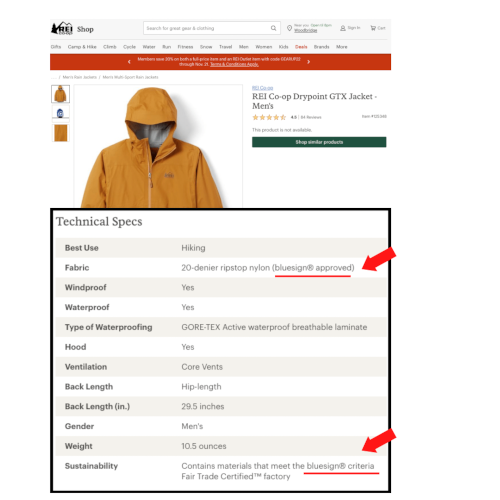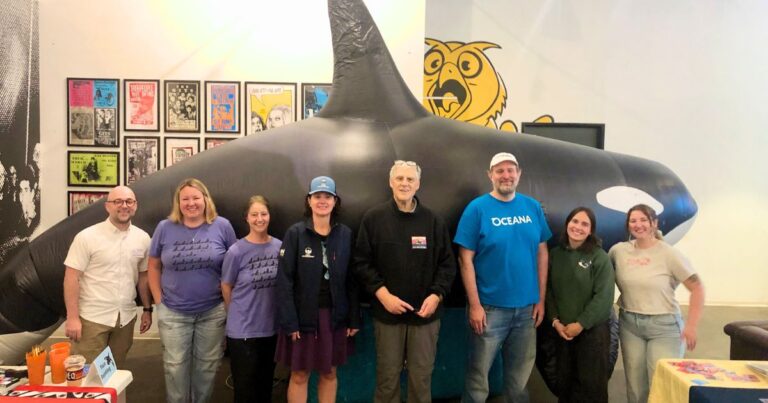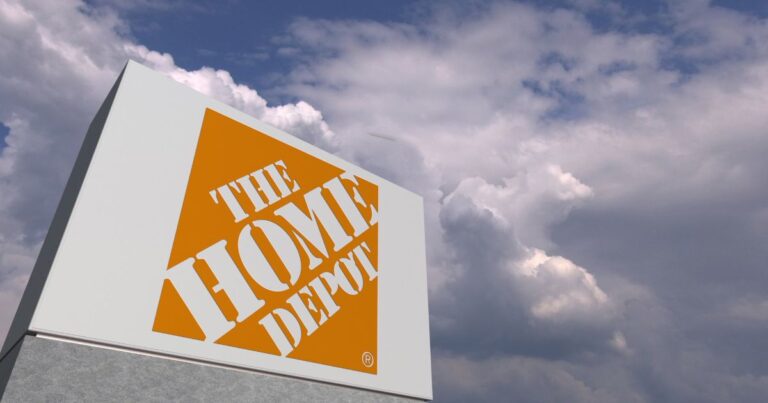When it comes to toxic PFAS “forever chemicals,” the handwriting is on the wall and REI knows it.
States like California, Washington, and New York are moving forward with restricting the entire class of these chemicals in clothing and other products due to health and environmental concerns. Concern from REI customers and members is mounting. And REI’s support of recently passed legislation in California banning PFAS in apparel seems to indicate the retailer knows it will soon need to break its PFAS habit.
But even though policy and market forces are clearly moving toward a PFAS-free future for apparel, REI still hasn’t publicly stated a clear timeline and plan to stop selling PFAS-laden products in its stores and make sure substitutes are safe. To add insult to injury, one of the ways that REI claims to deal with toxic chemicals like PFAS for private brand products is having a commitment to using bluesign® certified products and materials.
But here’s the rub: a product can be bluesign certified®, but the standard doesn’t make sure that certified products are free of all PFAS (e.g., in plastic membranes) or all highly hazardous ingredients or materials. When it comes to PFAS, bluesign® does not prohibit all of the chemicals and polymers in the class.
Most REI members or shoppers most likely assume that products with an eco-label like bluesign® would never contain carcinogens, reproductive toxicants, or chemicals (e.g., PFAS) that can wind up contaminating breast milk. Unfortunately, that’s not the case.
Our study from earlier this year found PFAS in 72% of products marketed as stain or water-resistant. In fact, one of the REI products we tested that contained PFAS was marketed with “bluesign® approved fabric.” While that particular product is no longer available, this points to a much bigger problem with REI using a certification like bluesign®.

In a nutshell, bluesign® fails to make sure products are as safe as they can be because it:
- Does not restrict the class of PFAS and all highly hazardous substances. Recently, it expanded its PFAS restrictions, but still allows them as plastic membranes (e.g. Gore-tex®).
- Does not require that all ingredients be assessed for their potential hazards or that the safer ingredients be used. This is how toxic chemicals not included on bluesign®’s restricted chemicals list sneak through the process.
- Does not require all ingredients to be publicly disclosed. There is no way for a shopper to know exactly what chemicals or materials are in the product they are deciding to purchase.
Finally, bluesign® is a for-profit company with no government oversight, and it partners with chemical corporations impacted by its certifications, including WL Gore (the manufacturer behind GoreTex®), Chemours, and 3M. All three of these companies make or use PFAS and have a vested financial interest in perpetuating the use of PFAS in bluesign®-certified products.
REI should emerge as an outdoor industry leader in making sure the products it sells are safe—not hide behind eco-labels like bluesign®.
Retailers, like REI, should take full responsibility to reduce their chemical footprint and take the following steps:
- Know and disclose what chemicals and materials are in the products and packaging it sells
- Assess the hazards of all ingredients using methods such as GreenScreen® or ChemForward that are utilized by governments like the state of Washington and other major companies
- Set clear, ambitious public goals with timelines and quantifiable metrics to end the sale of all products and packaging with the most hazardous chemicals, including all PFAS used in both durable water repellents (DWR) and plastic membranes
- Choose the safest solutions and invest in filling data and technology gaps
REI can lead the outdoor industry away from PFAS and towards solutions that are truly safer. Our planet, people, and wildlife are counting on it.





